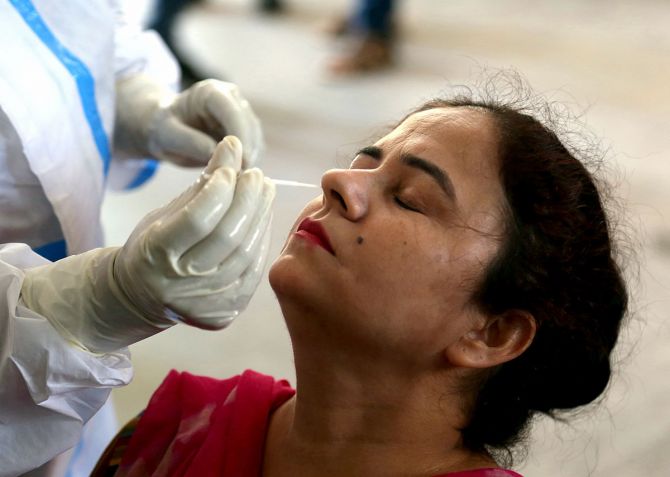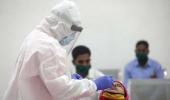Bharat Biotech International Ltd (BBIL) on Monday said it has completed the phase-III and booster dose trials for its intranasal Covid-19 vaccine BBV154, and it has proven to be safe.

The company said it had conducted two separate trials for its intranasal Covid vaccine, one as a primary dose schedule and another as a booster dose, for subjects who have been double vaccinated with the two commonly administered Covid vaccines in India.
It has proven to be safe, well-tolerated and immunogenic in subjects in controlled trials, BBIL said in a statement.
The data from both Phase III human clinical trials have been submitted for approval to national regulatory authorities, the company said.
"If approved, this intranasal vaccine will make it easier to deploy in mass immunisation campaigns with an easy to administer formulation and delivery device. Vectored vaccines also enable faster development of targeted vaccines in response to emerging variants of concern," Bharat Biotech joint managing director Suchhitra K Ella said.
The company said its 'BBV154' has been specifically formulated to allow intranasal delivery and designed and developed to be cost-effective in low and middle-income countries.
It is stable at 2-8 degree Celsius, enabling easy storage and distribution, Bharat Biotech said, adding that it has established large manufacturing capabilities at multiple sites across India, including Gujarat, Karnataka, Maharashtra and Telangana.
BBIL said the primary dose schedule phase III trials were conducted in 14 trial sites across India for safety and immunogenicity in around 3,100 subjects, and compared with COVAXIN, the company's existing COVID-19 vaccine.
The trials for booster dose studies were conducted in nine sites across India with about 875 subjects, where a booster dose (3rd dose) of BBV154 intranasal vaccine was administered to the participants.
The intranasal Covid vaccine was developed in partnership with Washington University St Louis, which had designed and developed the recombinant adenoviral vectored constructs and evaluated it in preclinical studies for efficacy, the company said.
On the other hand, BBIL took responsibility for product development related to preclinical safety evaluation, large-scale manufacturing scale-up, formulation, and delivery device development, including human clinical trials.
The company said the government of India had partly funded product development and clinical trials through the Department of Biotechnology's COVID Suraksha programme.









